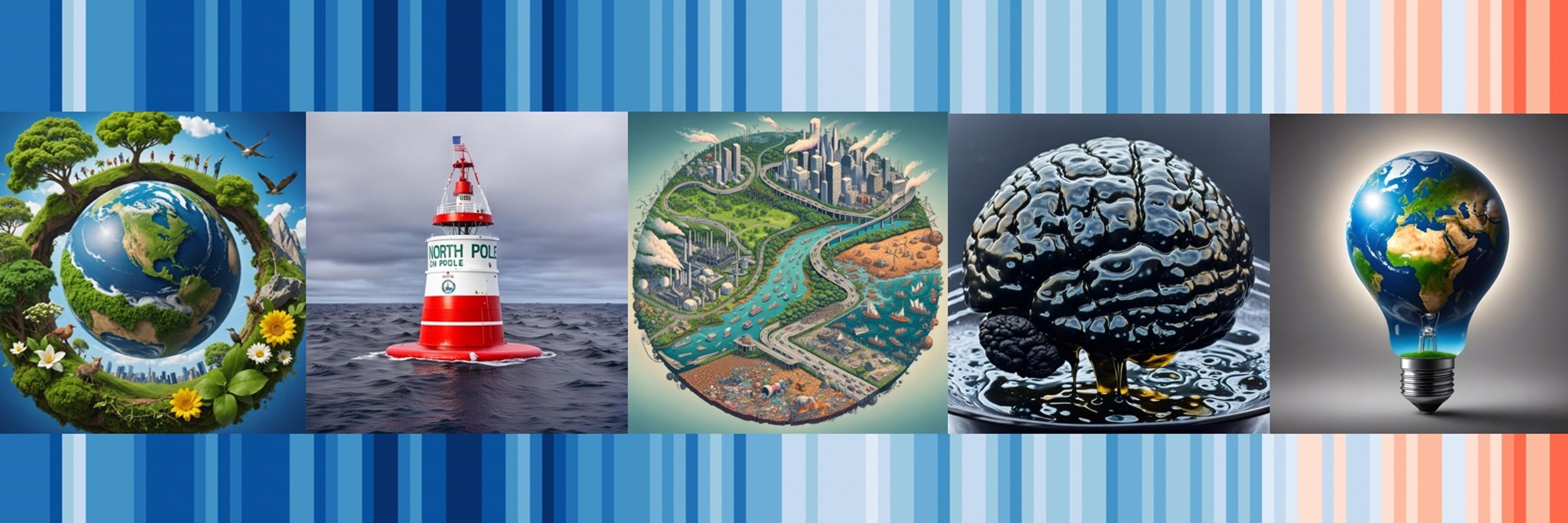
Soon to be retired Management Consultant specialising in Government funded R&D.
Hundreds of MPs, Peers, leaders of business, sports, faith and others heard directly from 8 renowned scientists about the urgent threat posed to the UK.
www.theguardian.com/environment/...

Hundreds of MPs, Peers, leaders of business, sports, faith and others heard directly from 8 renowned scientists about the urgent threat posed to the UK.
www.theguardian.com/environment/...
www.nature.com/articles/s41...
#climatechange #phycology #communication #risk #IPCC #AR7
www.nature.com/articles/s41...
#climatechange #phycology #communication #risk #IPCC #AR7
drtomharris.substack.com/p/breathless...
#climatechange #health

drtomharris.substack.com/p/breathless...
#climatechange #health
Please take the time to absorb the consequences of our inaction.
"Stardust could be capable of significantly altering the climate of the entire world in only a few years — and potentially wreaking unforeseeable environmental and geopolitical turmoil."
www.politico.com/news/magazin...

Please take the time to absorb the consequences of our inaction.
acp.copernicus.org/articles/25/...
#aerosols #climatechange #clouds #IMO2020 #ECS
acp.copernicus.org/articles/25/...
#aerosols #climatechange #clouds #IMO2020 #ECS
www.theguardian.com/commentisfre...
#climatechange #heatexposure #cold #mortality

www.theguardian.com/commentisfre...
#climatechange #heatexposure #cold #mortality
doi.org/10.1038/s415...

doi.org/10.1038/s415...
theconversation.com/how-china-cl...

theconversation.com/how-china-cl...


drtomharris.substack.com/p/amoc-weake...
#climatechange #amoc #adaptation #tippingpoint

drtomharris.substack.com/p/amoc-weake...
#climatechange #amoc #adaptation #tippingpoint
#ClimateChange #Antarctica #SeaLevelRise
@leonsimons.bsky.social @bikingmzstacey.bsky.social @radsci.bsky.social
youtube.com/live/iarx9Pi...

#ClimateChange #Antarctica #SeaLevelRise
@leonsimons.bsky.social @bikingmzstacey.bsky.social @radsci.bsky.social
youtube.com/live/iarx9Pi...
www.carbonbrief.org/analysis-fos...
#emissions #carbonbudget #fossilfuels #landusechange

www.carbonbrief.org/analysis-fos...
#emissions #carbonbudget #fossilfuels #landusechange
www.thegreatsimplification.com/episode/200-...
My summary and thoughts: drtomharris.substack.com/p/we-cannot-...
#climatechange #cryosphere

My summary and thoughts: drtomharris.substack.com/p/we-cannot-...
#climatechange #cryosphere
#climatechange #netzero #emissions #scenarios

#climatechange #netzero #emissions #scenarios
The report states that “AMOC shutdown appears all but inevitable”

The report states that “AMOC shutdown appears all but inevitable”
www.nature.com/articles/s41...
#climatechange #aerosols #albedo #ECS #acceleration

www.nature.com/articles/s41...
#climatechange #aerosols #albedo #ECS #acceleration
In this article, Prof of Artificial Intelligence John MacIntyre and I carry out a deep dive into the issues.
drtomharris.substack.com/p/will-ai-sa...

In this article, Prof of Artificial Intelligence John MacIntyre and I carry out a deep dive into the issues.
drtomharris.substack.com/p/will-ai-sa...
See if you can spot some regional differences:
1/2

See if you can spot some regional differences:
1/2
2,200 years ago a wealthy soldier was buried in a grave on the frontier of the Han Dynasty territory in western China. Whilst the archaeology is interesting, the wood of his coffin is invaluable to dendrochronologists.
www.science.org/content/arti...

2,200 years ago a wealthy soldier was buried in a grave on the frontier of the Han Dynasty territory in western China. Whilst the archaeology is interesting, the wood of his coffin is invaluable to dendrochronologists.
www.science.org/content/arti...
#antarctica #adventure #expedition #science #climatechange

#antarctica #adventure #expedition #science #climatechange


r3genesis.substack.com/p/200-how-re...
#climatechange #naturebasedsolutions #climatesensitivity #weather #aerosols #geoengineering

r3genesis.substack.com/p/200-how-re...
#climatechange #naturebasedsolutions #climatesensitivity #weather #aerosols #geoengineering
Perhaps the best way to keep up with climate science news of the past year, made for lay people, policy makers and scientists alike with its different levels of detail: from simple tiles to a journal paper.
10insightsclimate.science#explore

Perhaps the best way to keep up with climate science news of the past year, made for lay people, policy makers and scientists alike with its different levels of detail: from simple tiles to a journal paper.
10insightsclimate.science#explore

